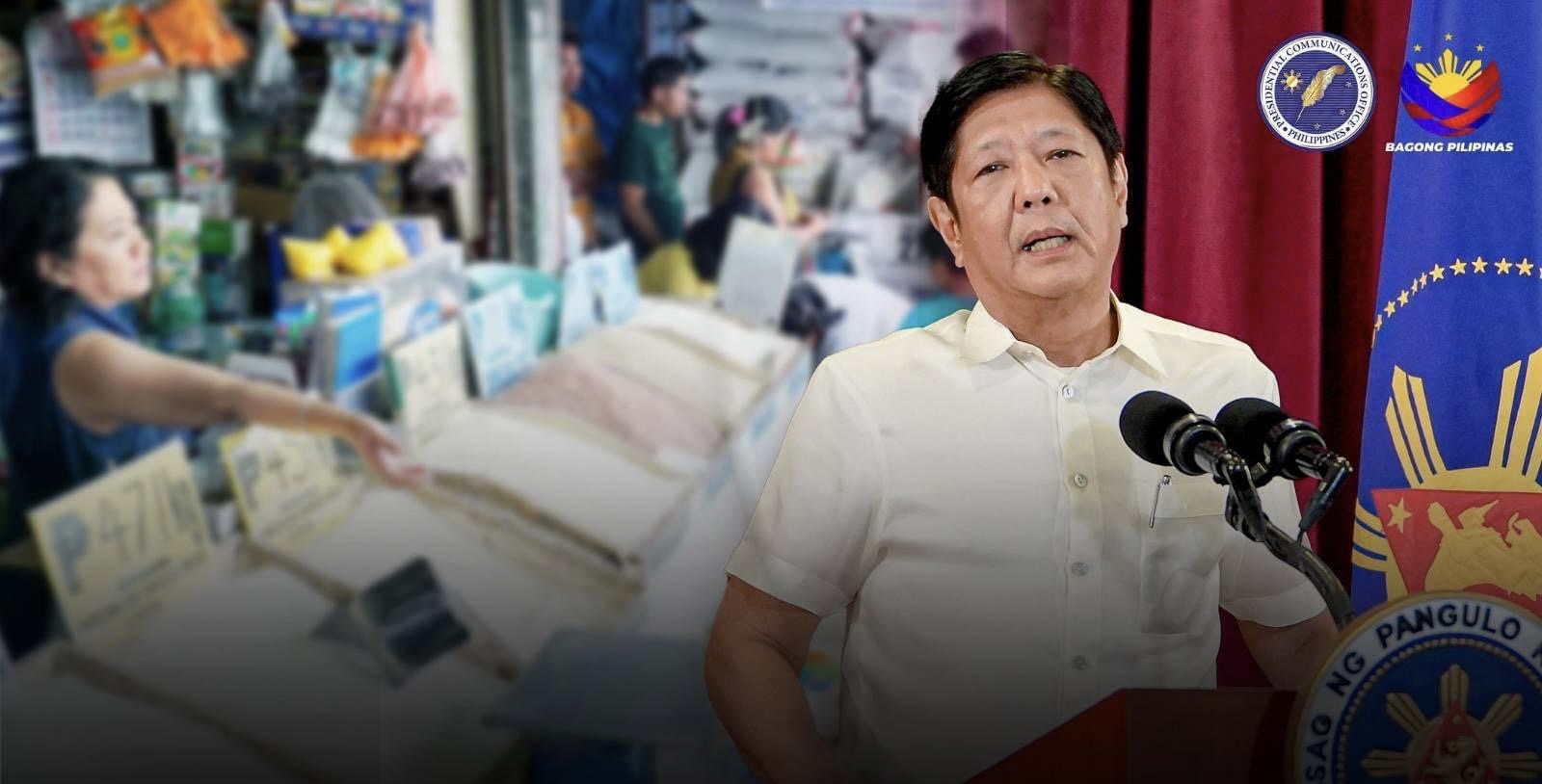Marcos says inflation now lower due to bridged food supply gaps
By Raymund Antonio and Raymund Antonio
President Marcos has credited his administration’s recent measures, such as the strategic partnership for rice supply with Vietnam, for the 2.8 percent inflation rate in January, the lowest since October 2020.
 President Ferdinand 'Bongbong' Marcos Jr. (Photo from the Presidential Communications Office)
President Ferdinand 'Bongbong' Marcos Jr. (Photo from the Presidential Communications Office)
In a post on X (formerly Twitter), the Chief Executive said the slowdown on inflation was “largely attributed to the decline in food inflation, which dropped to 3.3 percent from the previous month.”
“Our strategic partnerships with countries like Vietnam for rice supply to bridge supply gaps in key food commodities are crucial steps towards ensuring our progress,” he said.
The President also said that “proactive measures,” such as the implementation of the National Action Plan and the reactivation of Task Force El Niño in anticipation of the “possible adverse effects” of the El Niño phenomenon that could persist until May 2024, “will help us sustain manageable inflation in the coming months.”
Marcos expressed his administration’s commitment to “easing the burden on our citizens” as he is set to introduce other measures, including the recent electricity bill discounts for low-income households, to help Filipinos.
“Let's keep working together to overcome these economic challenges and build a better future for everyone under a Bagong Pilipinas,” he said.
The inflation rate recorded for Jan. 2024 was significantly lower than the 3.9 percent registered in December 2023 and puts the government well within its target range of 2 percent to 4 percent.
It also hit the Bangko Sentral ng Pilipinas’ (BSP) lower-end projection at 2.8 percent to 3.6 percent for January, and is the lowest since Oct. 2020 when the inflation rate was 2.3 percent.